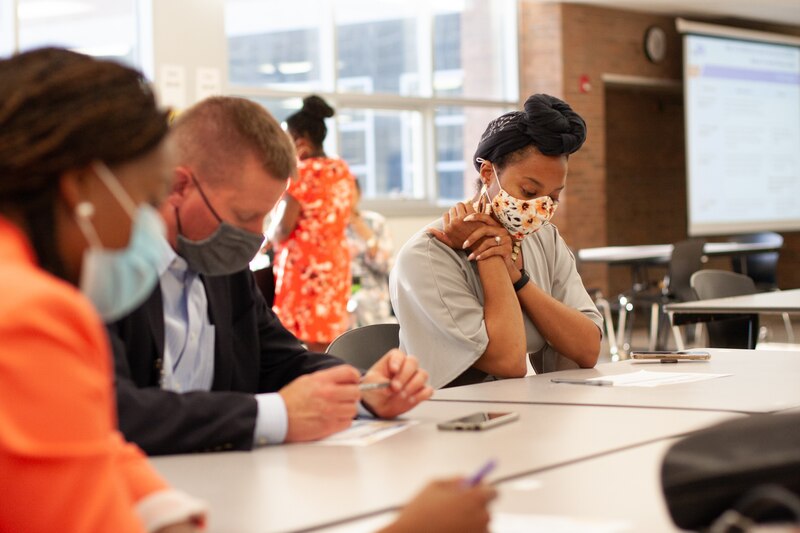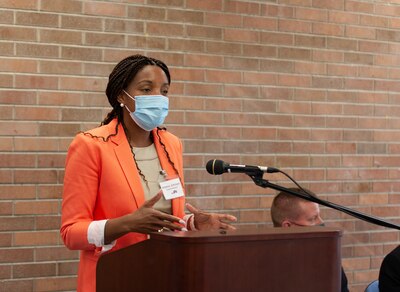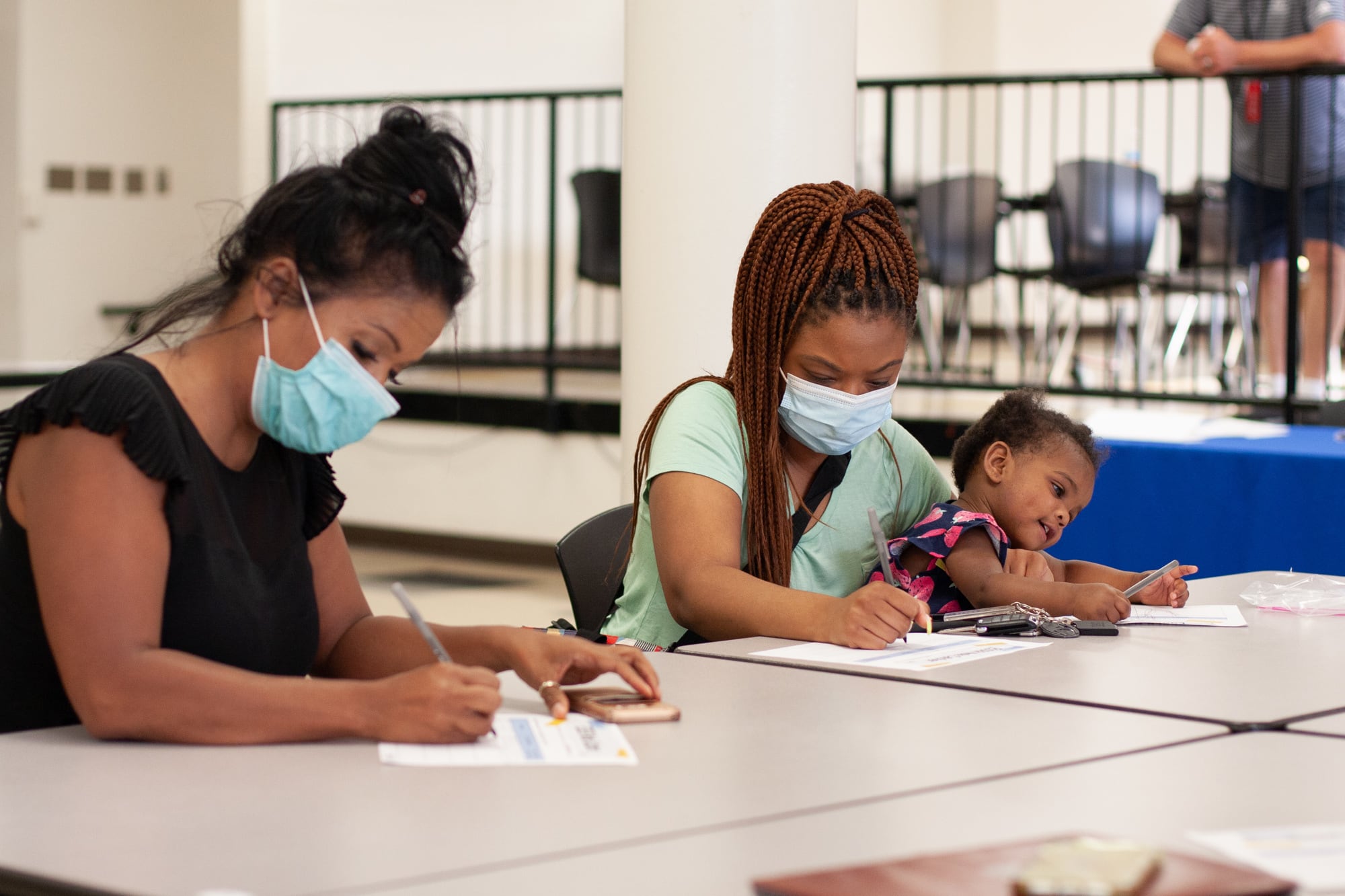Last year, Ann Brown’s daughter struggled through seventh grade at Indianapolis Public Schools. Dealing with a health impairment, she had trouble adapting to virtual classes and keeping up with schoolwork.
“She’s lost a year in math, and it needs to be recovered,” Brown said.
On Tuesday, Brown attended an IPS town hall to tell leaders how she thinks they should spend the third round of federal COVID relief funding: Provide individualized before- and after-school tutoring to address last year’s gaps in instruction.
Brown is one of many parents and community members who IPS officials hope to hear from this week at virtual and in-person town halls and through an online form. The district was allocated almost $136 million in the latest round of federal aid for schools, and must take public comment before spending it.
IPS officials plan to look for trends from this week’s feedback. The school board will discuss how to use the relief funds at meetings next week. IPS must submit an application to the state outlining its spending plan by June 25.
Fewer than 10 parents and teachers attended Tuesday evening’s town hall at Arlington Middle School, but they generated dozens of ideas.
Attendees pushed for accelerating learning and supporting mental health. Some, including Brown, emphasized the need for tutoring services, and others suggested hiring instructional assistants to provide more one-on-one help in each classroom. Almost universally, participants asked for more funding to support mental health.
“These kids need mental health services,” Brown said. “My daughter had to start therapy.”
Jasmine Burditt, senior director of policy and partnerships at local education advocacy group RISE Indy, agreed.
“I think mental health is really important for students right now, especially after COVID,” Burditt said.

After a year of technical difficulties, many people wanted more instruction on how to use the Chromebooks IPS purchased early in the pandemic. Attendees suggested training for parents on how to use the devices and to navigate the software so they could help kids troubleshoot. They also wanted more charging stations in classrooms and extra devices in case a student forgets theirs at home.
Some suggested mentorship programs for students transitioning into new schools. Attendees worried about students who started middle or high school virtually and didn’t have a chance to adapt to the new environment last year.
Many also mentioned relief for overworked teachers. Some suggested the district purchase school supplies that teachers typically buy out of pocket, and that it provide free therapy. Unlike many other districts, IPS didn’t provide teachers bonuses last year — and attendees wanted the district to tap into federal aid to boost teacher pay.
Some suggested awarding bonuses to students for high attendance and to parents who took on teaching responsibilities last school year.
Overall, IPS has received nearly $213 million in federal relief funding for K-12 schools, which comes out to almost $9,300 per student. As a comparison, that’s more than what IPS expects to receive per student in state funding next school year.
But the money comes with a catch: The district must spend each grant by a deadline, so the infusions can’t fix long-term financial problems. IPS must use its most recent award of Elementary and Secondary School Emergency Relief funds by Sept. 30, 2024.
“ESSER is not the solution to our long-term financial sustainability,” said Weston Young, the district’s chief financial officer.
With this in mind, Young encouraged attendees to brainstorm short-term purchases with long-term impact. He suggested options like providing virtual therapy services to students or purchasing reusable classroom supplies.

IPS Superintendent Aleesia Johnson said a portion of the funding will probably go toward purchasing new curriculum and updating buildings to improve air ventilation. The federal government requires that at least 20% of the latest round of aid address learning loss. Johnson said IPS might exceed that proportion.
While she wants to avoid hiring too many people knowing the funding will run out in three years, Johnson said the importance of accelerating learning now could mean IPS will invest in temporary hires or programs.
“We’re trying to think about this in terms of what we do now to improve in the future,” Johnson said.
Registration is still open for the last town hall, planned for 6 p.m. Thursday at George Washington High School.







